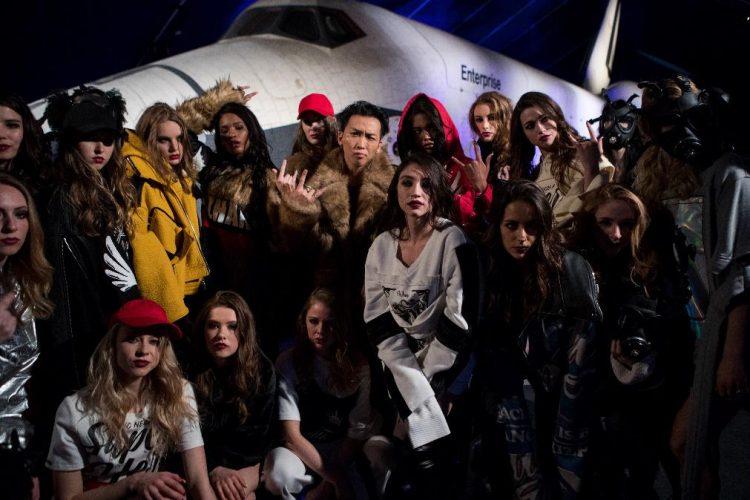
Chinese designer Chi Zhang’s latest collection, showcased at New York Fashion Week 2017, draws on fashion trends found by Tencent’s AI research team. Photo credit: Tencent.
Tencent announced today its latest AI initiative: an automated analysis of fashion trends among Chinese teens and tweens.
After processing billions of photos on Qzone – a newsfeed-like feature on QQ, one of Tencent’s social messaging apps – the company’s AI research team Youtu Lab identified popular fabric types and colors, down to specific RGB values (“light black” – or (22, 20, 24) – was the winner). The AI team also found that young consumers have a strong preference for patterns, such as flowers and letters.
Compared to its industry peers, such as Baidu and Alibaba, Tencent has stayed relatively quiet about its AI initiatives. Youtu Lab, which serves the company’s business units, doesn’t usually promote its external projects, such as Didi’s use of its facial recognition technology. But that doesn’t mean Tencent hasn’t been busy building out its capabilities for AI, a market estimated to be worth US$16 billion by 2022, according to market research firm MarketsandMarkets.
Last year, Tencent announced plans to open source its machine learning platform in 2017.
Last December, the Chinese tech firm announced plans to open source Angel, its internal machine learning platform, in the first quarter of 2017. That would put it in step with industry peers, such as Google and Baidu, which opened its deep learning system, PaddlePaddle, to third-party developers last September.
Tencent has also been investing heavily in cloud computing. During last year’s Sort Benchmark, a global competition for computing, Tencent Cloud sorted 100 terabytes of data in 99 seconds, breaking the world record previously set by Alibaba Cloud, Alibaba’s cloud computing arm.
See: Behind the scenes: how Alibaba Cloud powers the largest shopping holiday in the world
However, Tencent’s latest fashion project isn’t breaking any new ground in the AI industry. Startups like Mad Street Den, for instance, use image recognition technology for clothing recommendations and visual search. Youtu Lab goes one step further by automatically determining the age of users from their photos: the margin of error is three years, according to Tencent. But some of the report’s more complex analyses, such as the reason why Chinese teenagers like black (it’s easy to match, looks cool, and projects maturity), came from surveys and weren’t part of the machine learning process.
Still, Tencent has one crucial advantage when it comes to building AI: user data. According to the tech firm’s third quarter financial report last year, QQ had 877 million monthly active users (MAUs). In the same quarter, WeChat, Tencent’s other social messaging app, hit 846 million MAUs. Those apps and their user-generated content could yield a treasure trove of AI-powered analyses for ecommerce, marketing, finance, healthcare, and more.
Tencent’s report, which was released last week, is part of a wider partnership between Youtu Lab, Vipshop, an online discount retailer for brands, and Chinese designer Chi Zhang, who is launching a new collection inspired by Tencent’s findings at New York Fashion Week.
Tech in Asia has contacted Tencent for more details about its partnership with Vipshop.
This post Tencent’s AI dug through tons of data to analyze Chinese teens’ fashion sense appeared first on Tech in Asia.
from Tech in Asia https://www.techinasia.com/tencent-youtu-labs-vipshop-fashion-report
via IFTTT
No comments:
Post a Comment